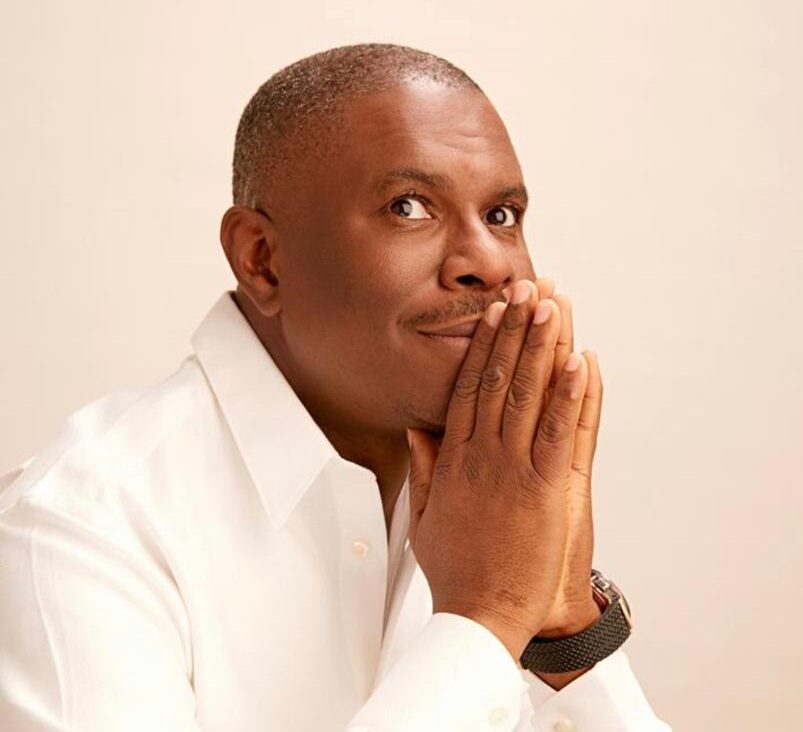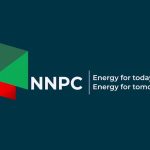In the heart of West Africa, where the echoes of drums narrate ancient tales of resilience, hope, and ambition, one nation rises as a luminous star in the ever-changing tapestry of democracy—Ghana. Its journey, marked by scars of struggle, is a testament to the resilience and determination of its people. Ghana’s democracy, like a river, carves its path through a region often engulfed by the shadows of political instability, offering more than just a model; it offers hope—a flickering yet determined flame that illuminates a region yearning for transformation.
For Nigeria, the region’s largest democracy, this light is both an invitation and a challenge. Despite its size, wealth, and influence, Nigeria struggles under the weight of its unrealised potential, grappling with systemic failures that have weakened its institutions and tested the faith of its people. Ghana’s journey is not just an inspiration for its neighbours; it is a call to action—a reminder that democracy is not a static state but a dynamic process that demands vigilance, sacrifice, and a relentless pursuit of the common good. Ghana’s story is not merely a narrative of governance; it is a powerful song of possibilities, a melody of what can be achieved when people and institutions unite to uphold the principles of justice, equality, and peace. It is a message to Nigeria and allWest Africa: the future belongs to those who dare to shape it.
Although fraught with multiple democratic missteps, Ghana towers above its neighbours in upholding the democratic tenet of free and fair elections, with little incidence of intimidation, vote buying, box snatching, political thuggery and official manipulations of electoral outcomes that are common in Nigeria’s electoral history. Besides the militarism and coup de tat that is sweeping across West Africa, it is not touching Ghana where, although with its many challenges, the people have adopted democracy as their ultimate form of government and are doing everything possible to deepen and consolidate the democratic gains.
At the heart of Ghana’s democratic strength lies its commitment to fostering political accountability and citizen engagement. Unlike many West African nations where power often oscillates between authoritarian rule and fragile democratic experiments, Ghana has maintained a steady course of civilian governance for decades. Since its return to multiparty democracy in 1992, Ghana has conducted eight successful general elections, with peaceful transitions of power occurring between rival political parties. For instance, in 2001, Ghana witnessed a historic moment when power peacefully transitioned from the National Democratic Congress (NDC) to the New Patriotic Party (NPP), setting a standard for political civility. 2009, this tradition continued as the NPP handed power back to the NDC after a closely contested election. These transitions contrast sharply with Nigeria, where political transitions have often been marred by allegations of electoral fraud, violence, and post-election litigation that weaken public trust in the democratic process.
Nigeria can draw significant lessons from Ghana’s ability to ensure smooth transitions of power. The peaceful handover of leadership in Ghana has been underpinned by the independence of its Electoral Commission (EC). Ghana’s EC has consistently exhibited professionalism, transparency, and impartiality, earning the confidence of both political parties and the electorate. By contrast, Nigeria’s Independent National Electoral Commission (INEC) has faced numerous allegations of bias and logistical challenges, often leading to disputed results and eroded trust. For example, during Nigeria’s 2019 general elections, reports of logistical delays and allegations of vote-buying cast a shadow over the process. Nigeria must strengthen INEC’s independence, provide adequate resources, and ensure that it operates free from political interference. Adopting Ghana’s approach to technological innovation, such as biometric voter registration and real-time results tracking, could also enhance transparency and reduce electoral fraud in Nigeria.
Ghanaians’ active engagement in the democratic process is another area where Nigeria could learn valuable lessons. Ghana boasts consistently high voter turnout rates, frequently exceeding 70%, as seen in the 2020 elections, where turnout reached 79%. This contrasts with Nigeria, where voter turnout has steadily declined, hitting a record low of 35% in the 2019 elections. The difference stems from Ghana’s emphasis on political awareness and education, which has cultivated an electorate that values its role in governance. Nigeria must urgently invest in civic education to enlighten citizens about their rights and responsibilities in a democracy. Such initiatives would boost voter participation and foster public officials’ accountability, as an informed electorate demands transparency and results.
Leadership plays a pivotal role in the evolution of democracy, and Ghana’s political history offers significant insights in this regard. Leaders like Jerry John Rawlings demonstrated a successful transition from authoritarianism to democracy, emphasizing moral governance and economic reform. While Nigeria has also made the transition from military rule to civilian governance, the quality of leadership has often been questioned, with allegations of corruption and self-serving policies taking precedence over national interests. Ghana’s relatively high level of political accountability can be attributed to the integrity of its leaders and their commitment to strengthening institutions rather than personalizing power. Nigeria could greatly benefit from prioritizing the election of leaders who value national development over individual gain, thereby fostering a culture of service and responsibility.
Education has been a cornerstone of Ghana’s democratic success, and it offers a model for Nigeria to invest in political and public administration education. According to the Ghana Statistical Service, the country’s political elite are notably well-educated, with over 60% holding tertiary degrees. This high level of education has translated into slightly better-informed policymaking and effective governance. In contrast, Nigeria’s political class has been criticized for lacking the requisite skills and educational background to address the complex governance challenges. By investing in education, particularly in political and public administration, Nigeria could prepare future leaders for the demands of public office. Ghana’s Free Senior High School policy, which has expanded access to education for thousands of students, provides a model that Nigeria could adapt to improve its human capital and strengthen its democratic institutions over the long term.
The role of Ghana’s Electoral Commission in ensuring credible elections provides another lesson for Nigeria. Ghana’s EC operates with high independence, overseeing the electoral process with transparency and professionalism. This starkly contrasts Nigeria, where INEC has often faced accusations of partiality and inefficiency. Nigeria must empower INEC to function autonomously to address these issues, with sufficient funding and legal protections against political interference. Additionally, Ghana’s adoption of technology, such as biometric voter registration and electronic transmission of results, has reduced incidents of electoral fraud and increased public confidence. Nigeria’s gradual adoption of such innovations is a step in the right direction, but it must ensure full implementation and proper oversight to achieve similar success.
Ghana’s vibrant political culture, characterized by constructive opposition and peaceful political rivalry, contrasts with Nigeria’s divisive and contentious political landscape. In Ghana, the ruling and opposition parties engage in policy debates that enrich the democratic process. Nigeria, however, has struggled with political violence and antagonism that undermine governance and stability. Encouraging issue-based politics and promoting dialogue between political parties could help Nigeria replicate Ghana’s inclusive and cooperative political environment.
In this last 2024 general election, voters turnout was encouraging and the election was fairly peaceful considering African election standards. There are isolated cases of ballot box snatching, and a confirmed case of one person was shot in Kasoa Zongo, located in the Awutu Senya East Constituency. that resulted in the death of a man, and accusations of low level interference by the government in power. However, ECOWAS observation mission and other election observation agencies have stated that the election was peaceful and credible. There are strong indications that the opposition party, NDC, may win the presidential election. This will be good for democracy in Ghana. The handing over of power from the ruling party to the opposition party demonstrates the maturing of Ghana’s democracy and indicates that the will of the people reigns supreme and is not subverted.
As the sun sets over the vibrant lands of West Africa, casting long shadows over bustling cities and quiet villages alike, Ghana stands tall—a lighthouse amid turbulent seas, a radiant beacon of democracy and hope. Its path has not been without trials, yet each challenge overcome has added strength to its foundation and brilliance to its light. Ghana’s story is a powerful reminder that democracy when nurtured with care, courage, and integrity, can endure against all odds. It is a testament to the transformative power of engaged citizens and enlightened leadership, showing that even in the most challenging circumstances, progress is not only possible but inevitable when people’s will prevails.
For Nigeria, whose vastness carries both the burden of its challenges and the weight of its promise, Ghana’s example is more than a model; it is a lifeline, a whisper of hope urging the giant to awaken, reflect, and reclaim its rightful place as a leader in Africa’s democratic renaissance. Nigeria has the resources, the people, and the potential to rival and surpass the success of Ghana, but it must first learn the lessons of vigilance, accountability, and the power of an informed electorate. Ghana’s journey offers a blueprint for navigating the storms of instability and creating a legacy of stability and progress.
In Ghana’s steady progress lies a profound truth: democracy is not a gift bestowed by chance or luck,but a destiny earned through sacrifice, unity, and determination. The heartbeat of Ghana’s democratic evolution reverberates across the continent, calling out to nations like Nigeria to rise above their struggles and embrace the transformative power of governance that truly serves the people. In this shared journey toward a brighter future, Ghana reminds us that where there is will, there is an unyielding way, and where there is hope, there lies the promise of renewal and greatness.






















Leave a comment